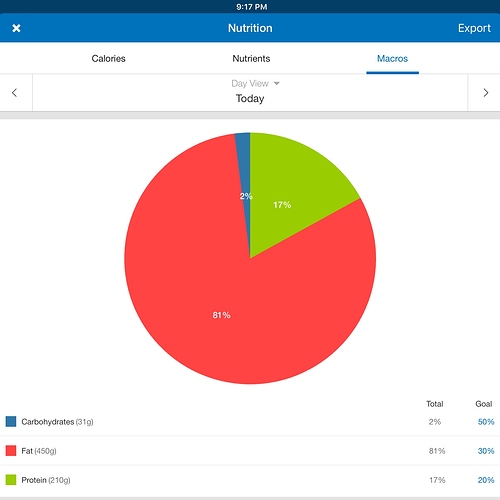Hello all.
I’ve been reading the forums every night this week as I start Keto and thought I’d lay out my circumstances and intentions in hopes of minimizing the amount of mistakes I will most surely make embarking on this endeavor.
I “workout” 50-60 hours a week. That is right. 50-60 hours. I am a food courier by day and by morning and weekend I am an ultra trail runner. My runs are aerobic (right now) and my work delivering food on bike is variable aerobic/anaerobic.
Biking = 36-40hrs/week.
Running = 12-18hrs/week.
These variables are fixed and so any suggestion to “do less,” while I appreciate any advice, will fall on deaf legs.
I am 7 days in to my first honest foray into fat adaption.
I am 5’10, 165lbs, 15% body fat (according to this scale in my house which is probably off by ±2-3%). I have been a food courier for 2 years and an ultrarunner for 4 years having completed 1 50k, 2 50-milers, and 4 100-milers.
My 100-mile PR is 21:57:05 set on a 96deg at altitude.
My interest in Keto stems from the fact that I am 33 years old, single, truly in love with endurance and I want to commit to my health more substantially to change my body composition so that I can soar down mountains and ascend with greater ease. THere is no better feeling in my life than that.
So. I have been eating about 2% carbs, 70-75% Fat and 20-25% protein. Needless to say that with my workload and this macro breakdown, I have been bonked all week. Headaches for the first couple days, mental fog for the next couple and it still lingers, and both my runs and my shifts on the bike are suffering. This I expected and I am more interested in making an expedited transition to fat adaption rather than a protracted one with slightly better training/work.
What I want to know from you all is just what advice you have for someone in my scenario. I’d really appreciate it if you respected that the running and biking are fixed variables and maybe if you could put yourself in my shoes, with your wisdom and experience, and tell me what you would do so that I am nourishing my body, aiding in adaptations, and gradually moving towards lower body fat %. How should I reintroduce carbs?
My current foods (eggs, oils, meats) are very plain so to help kill off bacteria left over from the sports nutrition of my last 100-miler. I am not of the mind to fuel with fats during my events. I will continue to do my overdistance runs training with complex carbohydrates but my meals before and after will be very low carb or zero carb. That said, for this adaption phase, I will withhold from those race fuels for the next month or so as all my miles will be at MAF (aerobic) paces.
For someone with my workload, I imagine if I am properly fat adapted, my system may be able to utilize well-timed carbs up to 100-200g carbs/day and stil remain in ketosis. At least this is what I have gleened from the limited amount of stuff I can find.
I am just also grateful to have found you guys and read your stories of progress and transcendence. I am also a person in recovery and have found that when I remove sugar from my life and start to fuel on ketones, my mental sobriety increases noticeably. Just a side note there.
Anyways, hello. My fellow trail runners call me Steep. I’m keeping calm…and I’m all ears!
Sincerely,
Steep



